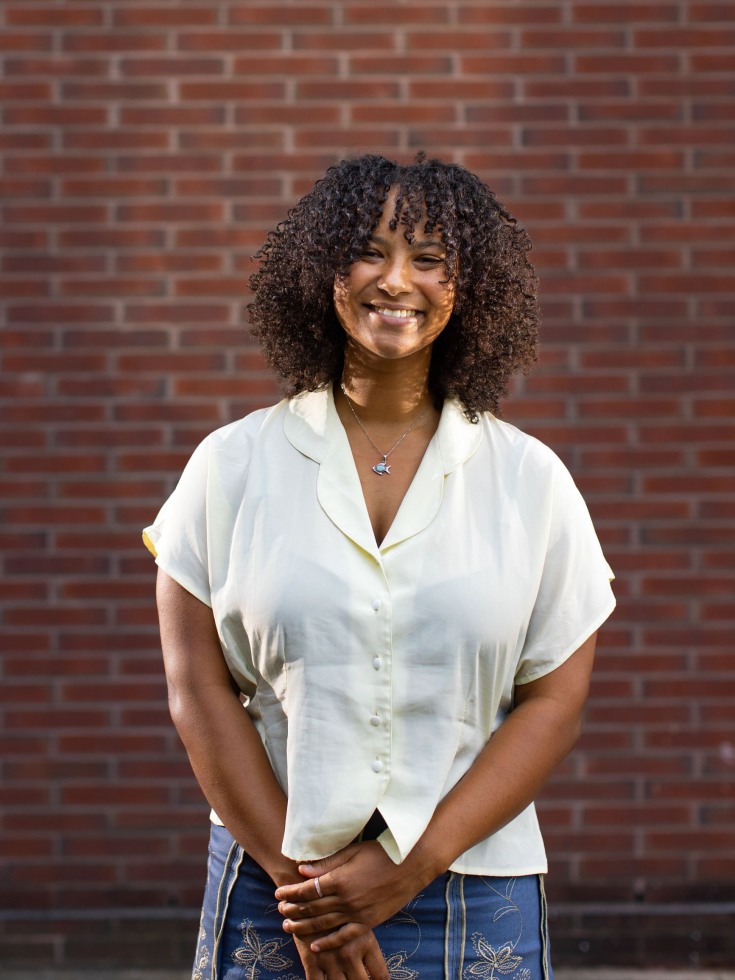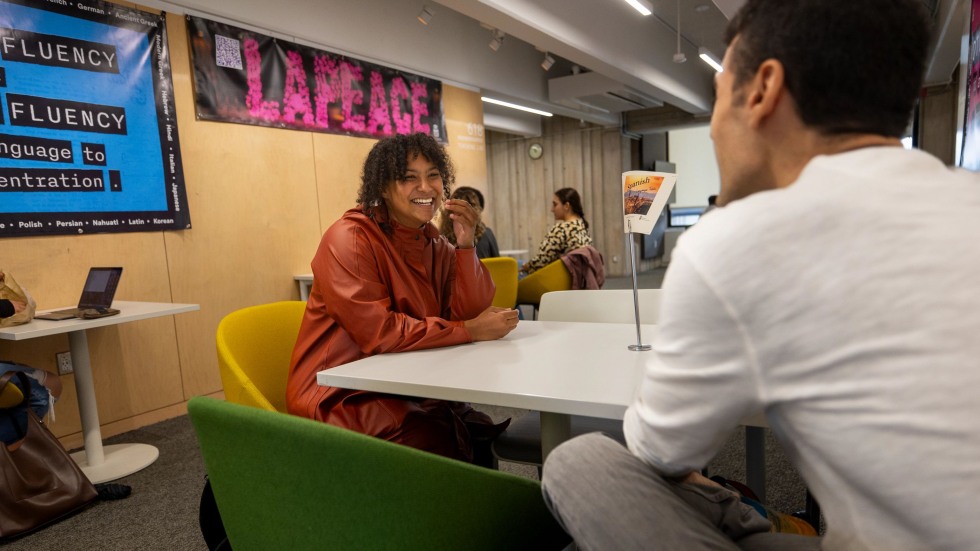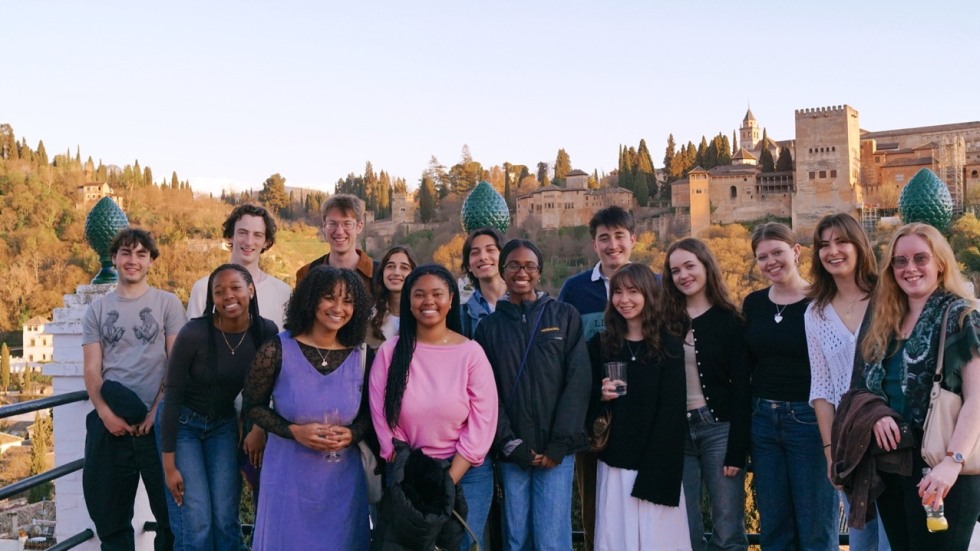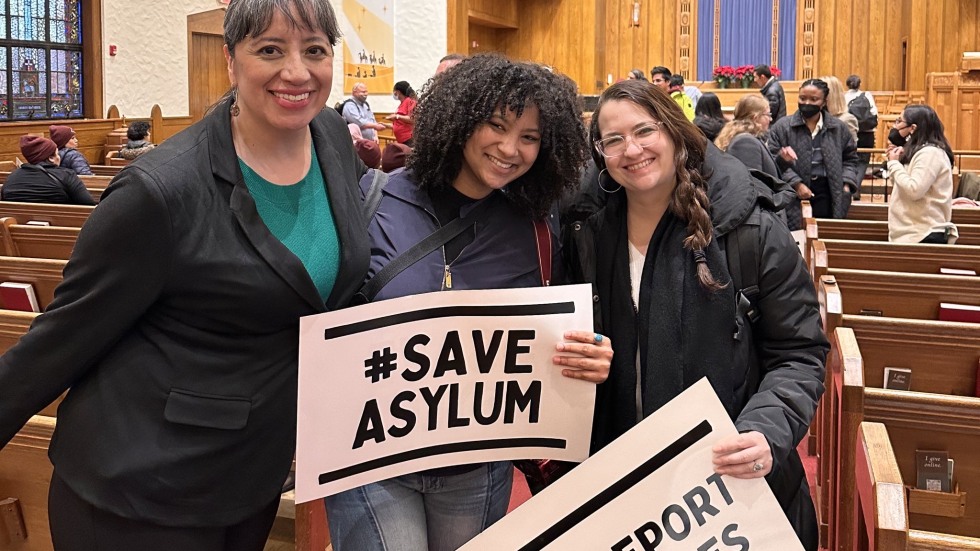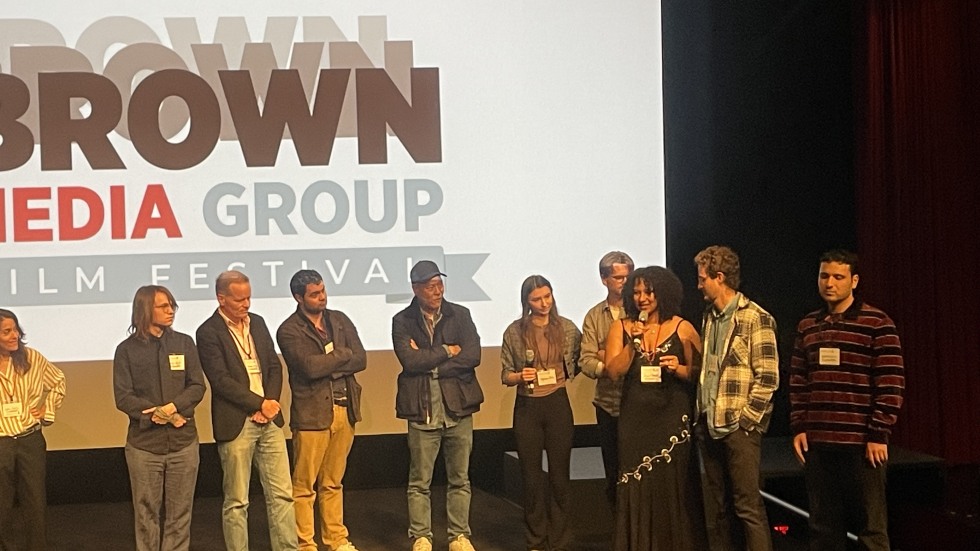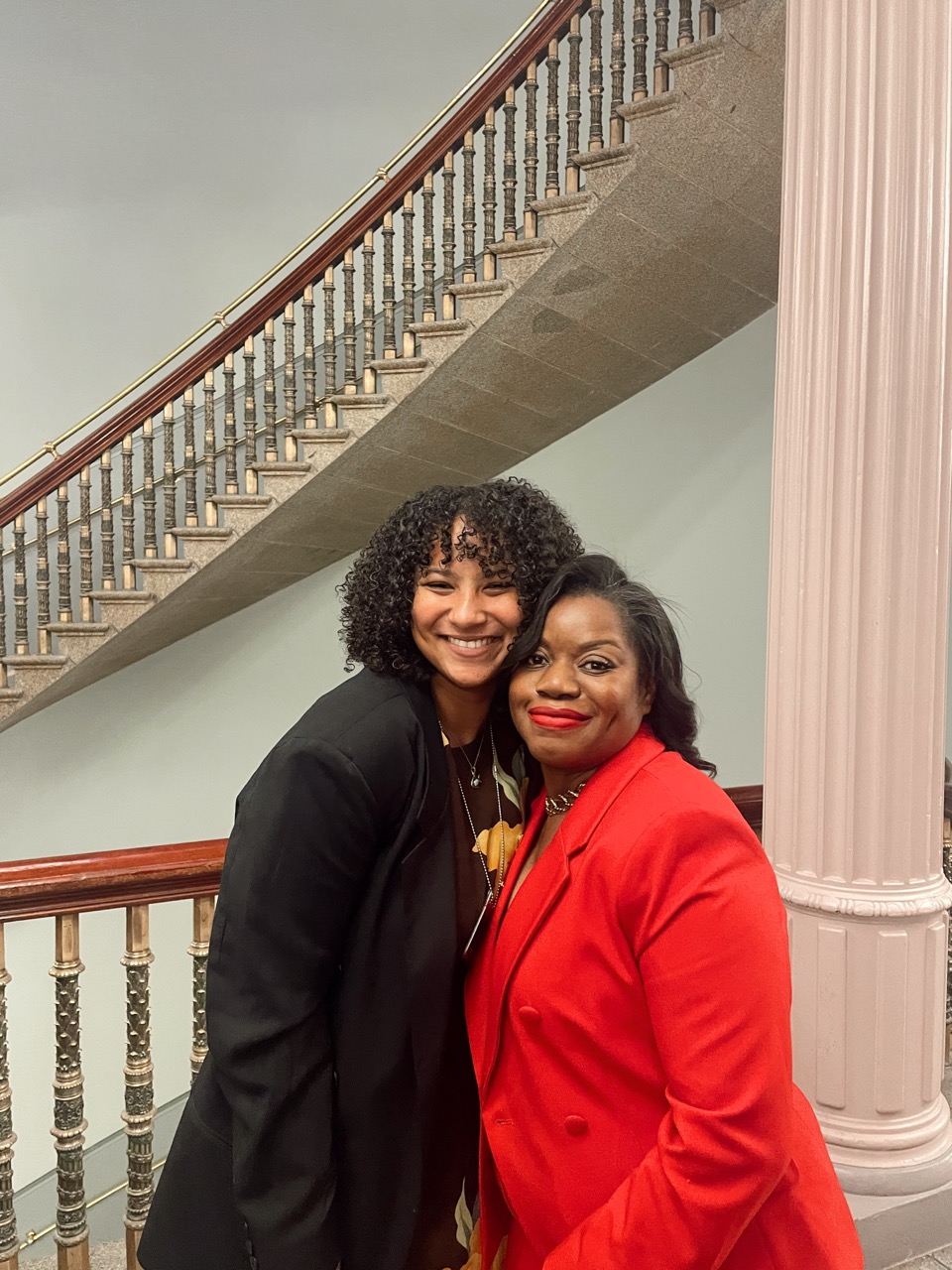PROVIDENCE, R.I. [Brown University] — Uncertain about her future when she graduated from high school in Bellingham, Washington, in 2019, Paige Censale was drawn to the U.S.-Mexico border. There, a volunteer role with an immigrant-advocacy nonprofit quickly evolved into a full-time position as a videographer, photographer and graphic designer documenting the organization’s work with asylum seekers.
Two years of on-the-ground experience inspired Censale to apply for a U.S. State Department fellowship that took her to Germany and to a refugee camp in Greece, all of which deepened her appreciation for intercultural exchange and the importance of global affairs and policymaking.
“That was when things started to light up for me, and I was realizing I can apply my real-world experience to the classroom,” Censale recalled.
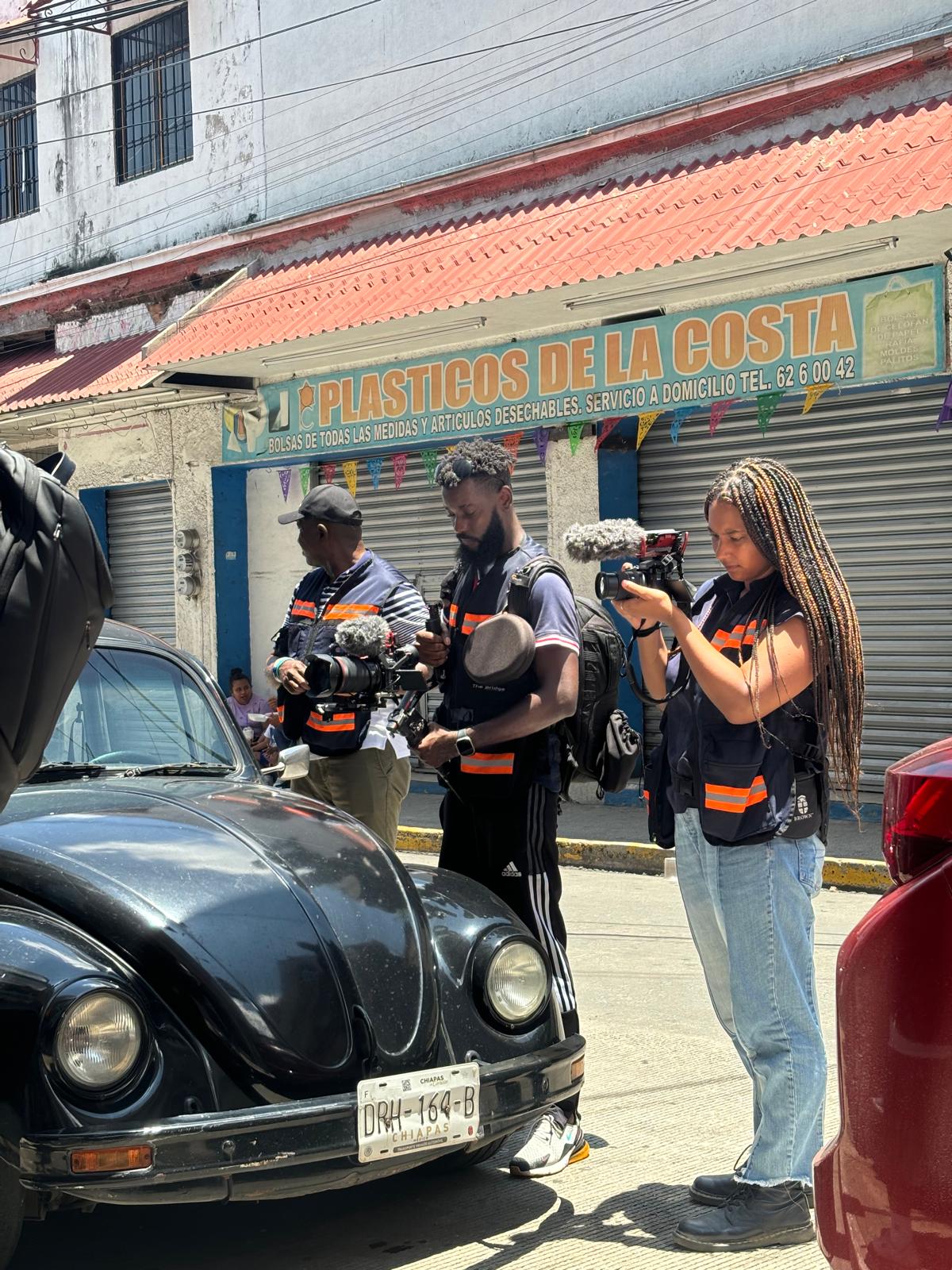
But as she gained experience and developed a vision for her future, her home life presented challenges. Her father died unexpectedly, and her mother began developing memory loss soon thereafter.
“When my dad passed away, my mom really started showing signs that something wasn’t right,” Censale said. “I spent over a year taking her to neurologists and getting tests to figure out what was going on — and at the same time, I was applying to college.”
Drawn to Brown’s signature Open Curriculum, she was admitted a month before her mother’s diagnosis of early-onset Alzheimer’s, presenting Censale with an incredible opportunity — and a nearly impossible decision.
“I had to decide between being a full-time caregiver and turning down a full scholarship to Brown or leaving her by herself since my younger brother was going to college, too,” she recalled. “I thought deeply about what this decision meant for the trajectory of the rest of her life, and I ultimately took the opportunity to come to Brown, because I felt like I could help my family and other caregiving families more by preparing for a career of impact.”
Censale knew Brown would be an ideal environment to nurture her interests in documentary journalism and advocacy work.
“The Open Curriculum was the number-one reason I chose Brown — to have the freedom to take classes where I could just dive right into the topics that I was interested in,” said Censale, who is concentrating in international and public affairs at the Watson School of International and Public Affairs. “On top of that, I was really grateful for the full financial aid — I have a lot on my plate, but I feel so incredibly lucky to be here and for the support from Brown as I manage my mom’s care from across the country.”
The Open Curriculum and a clear mission
Now a junior, Censale feels empowered by the classroom environment.
“I feel like I was missing so much historical context behind both the work I’ve done on the border and the mess we are in now with health care in the U.S.,” she said. “My classes at Brown have expanded my perspective, pushing me to think more critically and to ask deeper, more thoughtful questions that have led me to discover more inspiring stories that I hope to continue to translate through film.”

